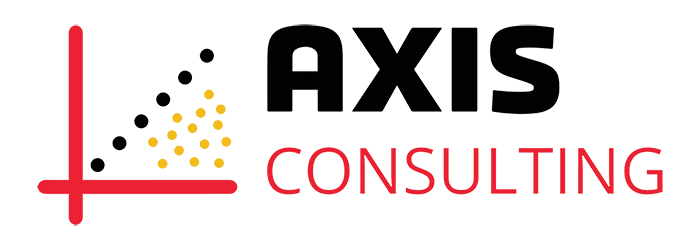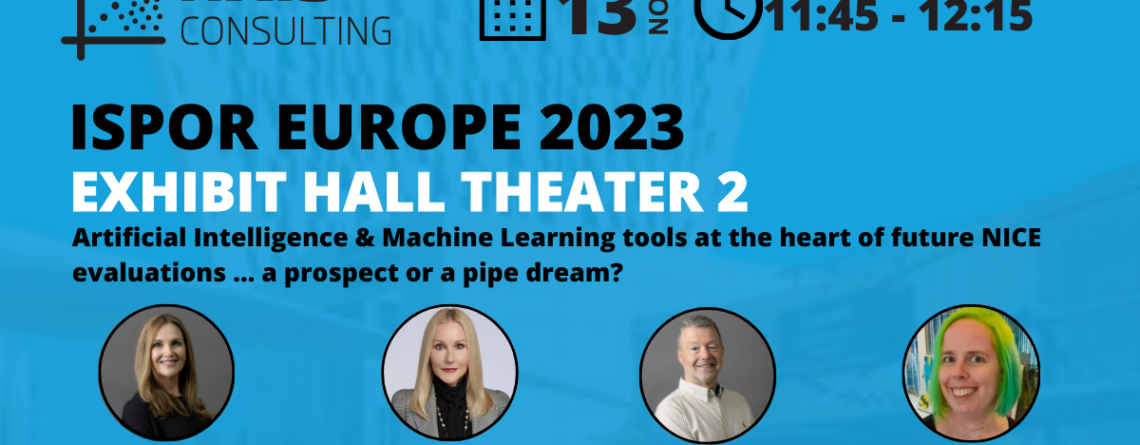AXIS Consulting CEO calls for establishment of multi-stakeholder working group to agree rules of engagement to ensure current high standards are maintained.
CEO and Founder of AXIS Consulting, Brenda Dooley, is calling for a multi-stakeholder working group to agree rules on AI and machine learning (ML) to ensure the current high standards involved in the assessment of value for new drugs are maintained across Europe. She is warning, however, that full transparency will be key in ensuring the information can be trusted. On Monday, 13th November, Ms Dooley will host a discussion with a panel of experts at ISPOR Europe in Copenhagen, focusing on the future of submissions made for health technology assessments (HTAs) of new medicines. AXIS Consulting is a leading provider of strategic market access and HTAs for pharmaceutical companies in the UK and Ireland.
Monday’s panel at ISPOR Europe will cover ‘Artificial Intelligence and Machine Learning tools at the heart of future NICE evaluations…a prospect or a pipe dream?’ Brenda Dooley will moderate the discussion and will be joined by biopharma AI strategist Dr Andrée Bates, HEOR & HTA Business Consultant Steve Beard, and Associate Professor of Health Economics and Health Policy Dawn Lee. The session will begin at 11.45am in the Exhibit Hall Theatre.
Across the last decade, there has been an exponential growth in the volume of, and broader interest in, publications around the theoretical and ethical considerations of using AI and ML methodologies within the health sector. Now, as 2024 approaches, there is a clear move towards the next phase of developmental adoption, with a focus on expanded practical developments. As part of this, AI and ML-based tools are being trialled in support of the key analytical and evidence-gathering process stages within a HTA.
The reality, for the sector, is that these tools have the ability to expedite the development of HTA submissions, as well as the subsequent turnaround times for requests from assessment agencies, and the associated decision-making process. The result will be quicker assessment times for new drugs, and ultimately the potential for faster availability for patients who are relying on getting access to these new medications.
While the reported use of AI/ML in HTA submissions globally remains at a low level, experience in other sectors shows major jumps in AI technology in very short periods of time. Furthermore, it is expected that the global healthcare AI market will be worth almost US $188 billion by 2030, increasing at a compound annual growth rate of 37 percent from 2022 to 2030. Nonetheless, studies focusing on AI usage for HTA decision-making remain scarce, with a Frontiers research article suggesting that the HTA community initiate conversation and explore best practices for relying on AI-based evidence in assessments, as well as making recommendations on how big data can generate more accurate inputs for re-evaluating technologies.
Speaking ahead of Monday’s panel discussion at ISPOR Europe, AXIS Consulting CEO and Founder, Brenda Dooley, said:
“These technologies are coming to the HTA community, whether we’re ready or not, and I believe it is crucial that the key stakeholders come together sooner than later to collectively shape the future of the sector in this regard. We really need to make decisions on the rules and boundaries to impose in HTA submissions. The reality is that AI and machine learning tools have the ability to dramatically reduce the time spent, both on the preparation and evaluation of HTA’s. If we can reduce the time it takes to have submissions approved and facilitate faster access to life-saving medicines, this is progress everyone will want to see. I believe AI-generated content can and will form a core part of future submissions, especially in literature-based activities, but it is critical that we bring the necessary high levels of transparency and trust to the process. We want to speed up market access, but we must agree and determine the key rules of engagement that hold us to the high-quality standard currently used for informing key decisions on what drugs should be recommended for reimbursement.”


